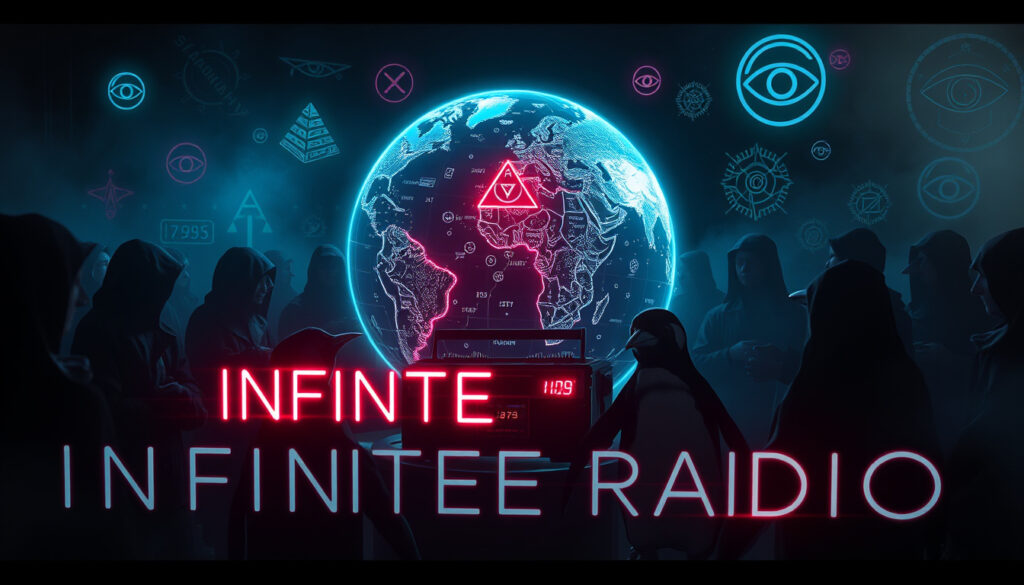Conspiracy theories have long captured the imagination of the public, igniting debates, suspicion, and intrigue.
These narratives, often cloaked in mystery, suggest that powerful entities are manipulating events behind the scenes.
Whether it’s an unfounded rumor or a widely held belief, understanding conspiracy theories is essential to navigating our complex reality.
In this article, we will delve into the world of conspiracy theories, exploring their definitions, popular examples, psychological underpinnings, and the significant impact they hold over society.

Key Takeaways
- Conspiracy theories are narratives that explain events or situations in ways that contradict widely accepted viewpoints.
- Popular conspiracy theories can influence public opinion and distract from factual information.
- Psychological factors such as cognitive bias and a need for certainty drive people to embrace conspiracy thinking.
- Social dynamics, including group identity and distrust in authorities, contribute to the spread of conspiracy theories.
- The impact of conspiracy theories can lead to real-world consequences, affecting societal trust and public policy.
Understanding Conspiracy Theories: What They Are and Why They Matter
Conspiracy theories are fascinating phenomena that capture the public imagination, often swirling around pivotal events and significant figures in history.
A conspiracy theory can be defined as a belief or explanation that suggests that events or situations are secretly manipulated behind the scenes by powerful, covert groups rather than being the result of natural or random occurrences.
These theories can range from the plausible to the outlandish, encompassing narratives about government cover-ups, alien encounters, and even secret societies that allegedly control world affairs.
Understanding conspiracy theories is important as they reflect societal fears, distrust in authorities, and the ways in which people seek to make sense of complex realities.
In our increasingly interconnected world, where misinformation spreads rapidly through social media and other platforms, recognizing the underlying motivations for these theories and their implications on public perception is crucial.
By examining conspiracy theories critically, we invite more informed discussions and potentially counteract the divisive impact they can have in our society.
The Most Popular Conspiracy Theories Explained
Conspiracy theories have fascinated people for centuries, captivating imaginations and sparking debates worldwide.
These beliefs often center around the idea that covert groups or individuals are working behind the scenes to manipulate events for their benefit.
Among the most popular conspiracy theories is the idea that the moon landing was faked, suggesting that the U.S.
government staged the event to assert dominance during the Cold War.
Similarly, the theory surrounding the assassination of President John F.
Kennedy posits that there was a coordinated effort involving multiple parties to eliminate him, with evidence often cited from declassified documents and questionable eyewitness accounts.
On a more contemporary note, the rise of digital conspiracy theories, including those related to COVID-19, has shown how quickly misinformation can spread in the age of social media.
Understanding these conspiracy theories is crucial, as they not only reflect societal anxieties but also influence public perception and behavior.
As we delve deeper into the realm of conspiracy theories, it becomes clear that they serve not just as entertainment but also as cultural touchstones that can impact our worldview.
‘The price of apathy towards public affairs is to be ruled by evil men.’ – Plato

The Psychological and Social Factors Behind Conspiracy Thinking
Conspiracy theories have captivated the public imagination for generations, often arising from deep-seated psychological and social factors that shape human behavior and perception.
At the core of conspiracy theory belief is a desire for control and understanding in an increasingly complex world.
People are naturally inclined to seek patterns and narratives, especially during times of uncertainty or crisis.
This need can lead to the embrace of conspiracy theories that offer simplistic explanations for complicated events, such as pandemics or political upheaval.
Socially, group dynamics play a crucial role; individuals may gravitate towards conspiracy theories to enhance group identity or solidarity, often rejecting mainstream narratives in favor of alternative explanations that align with their beliefs.
Moreover, the rise of social media has amplified these theories, enabling them to spread rapidly and find communities of like-minded individuals.
Understanding these psychological and social factors not only sheds light on why conspiracy theories are so appealing but also highlights the importance of fostering critical thinking and media literacy in combating misinformation.
The Impact of Conspiracy Theories on Society and Reality
In recent years, the rise of conspiracy theories has significantly impacted society and our perception of reality.
A conspiracy theory posits that certain events or situations are secretly manipulated behind the scenes by powerful groups, often leading to widespread skepticism toward established narratives.
This phenomenon can shape public opinion and influence behavior in ways that are both unpredictable and alarming.
Social media platforms have amplified these theories, enabling rapid dissemination and fostering communities that reinforce these beliefs.
As a result, mainstay institutions—such as the government, media, and science—face eroded trust among segments of the population.
This growing trend not only undermines crucial societal norms but also leads to potential real-world repercussions, including political polarization, public health risks, and social discord.
Understanding the psychology behind conspiracy theories can aid in developing strategies to counteract their spread and rehabilitate trust in factual information and credible sources.
Infinite Plane Radio, live open phones, real time discussions and chat.

